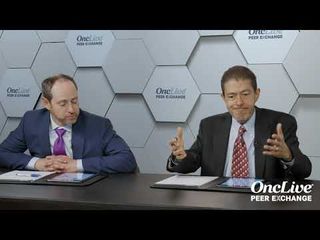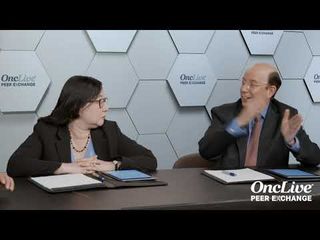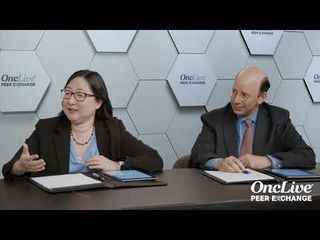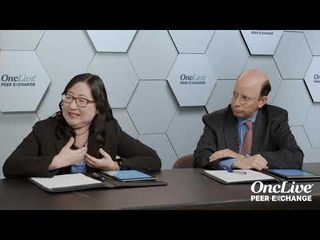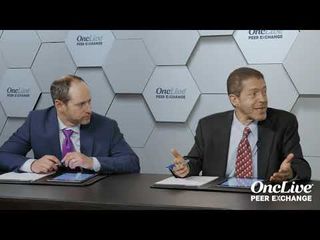
Supportive Care
Latest News

The first-in-class small molecule HIF-PHI inhibitor roxadustat demonstrated promising efficacy with favorable tolerability when used in the treatment of chemotherapy-induced anemia in patients with non-myeloid malignancies, meeting the primary end point of the phase 2 WHITNEY trial.

FDA Issues a Complete Response Letter for Eflapegrastim for Chemo-Induced Neutropenia
Video Series

Latest Videos
CME Content
More News

Treatment with the CDK4/6 inhibitor trilaciclib prior to chemotherapy compared with placebo significantly reduced the need for supportive care interventions in the management of severe neutropenia and grade 3/4 anemia induced by chemotherapy in patients with extensive-stage small cell lung cancer.

Avatrombopag failed to meet the composite primary end point of avoiding platelet transfusions, chemotherapy dose reductions by 15% or greater, and chemotherapy dose delays by 4 days or more in patients with solid tumors and chemotherapy-induced thrombocytopenia.


To address disparities, it is important for institutions to embrace and promote the fostering of an inclusive culture and environment for healthcare professionals of all races and genders, and to adequately equip women specifically with the tools they need to achieve success in the field.

Plinabulin was found to be a more favorable option for the prevention of chemotherapy-induced neutropenia compared with pegfilgrastim during the coronavirus disease 2019 pandemic.

Shaily Shah, MD, discusses disease and treatment-related ocular toxicities that can arise in patients with cancer, specific management strategies for patients receiving belantamab mafodotin who develop ocular toxicities, and the importance of collaborative management of these patients.

The FDA has granted a breakthrough therapy designation to plinabulin for chemotherapy-induced neutropenia.

One of the main methods to address this disparity of cancer care is using community health workers and navigators to do the grassroots outreach.

Heather Greenlee, ND, PhD, MPH, provides strategies to mitigate the increased risk of cardiovascular disease in women with breast cancer.

Pankti Reid, MD, MPH, discusses remaining challenges regarding the management of immune-related adverse effects.

Marianne Davies, DNP, MSN, RN, APRN, CNS-BC, ACNP-BC, AOCNP, discusses the management of immune-related adverse effects in patients who are receiving treatment with checkpoint inhibitors.

In our exclusive interview, Don S. Dizon, MD, FACP, FASCO, discusses the primary physical and residual psychological effects of gynecologic cancers on women’s sexual health, the challenges of broaching these topics in the clinic, and the role oncologists play in helping patients manage these difficulties.

One of the most important tasks that oncology nurses face is ensuring that patients are taking their medications consistently and correctly, and that adverse events are properly managed—specifically in those patients with breast cancer.

Judging from the drug pipeline, the future of oncology is oral chemotherapy.

Data suggest that up to 95% of patients with lung cancer score below the fiftieth percentile on sexual function during and after completion of cancer-directed therapy.

Efbemalenograstim alpha (F-627) has demonstrated strong and lasting benefit when used as a treatment for chemotherapy-induced neutropenia in patients with breast cancer, meeting the primary and secondary end points of a phase 3 study.

Toby Campbell, MD, MSCI, discusses the nuances of palliative care in oncology.

Dawn L. Hershman, MD, MS, spotlights important data pertaining to cancer care delivery, prevention, symptom management, and survivorship that were presented at the 2020 ASCO Virtual Scientific Program.

Baseline physical activity and physical function prior to a cancer diagnosis or treatment affects survival, with evidence spanning across solid tumor types and hematologic malignancies.

The FDA has launched a new initiative called Project Patient Voice, which is a website that will serve as a source of publicly available information regarding patient-reported symptoms from cancer trials examining marketed treatments.

The FDA has approved burosumab-twza (Crysvita) injection for the treatment of patients aged 2 and older with tumor-induced osteomalacia, which is described as the development of tumors that cause weakened and softened bones.

In our exclusive interview, Dr. Hegazi, shed light on nutrition-related issues among patients with cancer, early intervention strategies for patients who experience loss of muscle mass and function, and the use of specialized nutrients to prevent muscle degradation.

The combination of plinabulin and pegfilgrastim showed a significant enhancement in the rate of grade 4 neutropenia prevention compared with pegfilgrastim alone in patients undergoing chemotherapy, meeting the primary end point of a prespecified interim analysis of the phase 3 PROTECTIVE-2 trial.







